Bird owners understand the unique bonds that people can share with birds. Birds are intelligent, sociable, and live for many years. They are also relatively inexpensive and easy to care for, making them a worthy choice for all animal lovers. If you are considering adding a bird to your family, check out the five best types of exotic pet birds and discover their personalities and needs before deciding.
African Gray Parrot
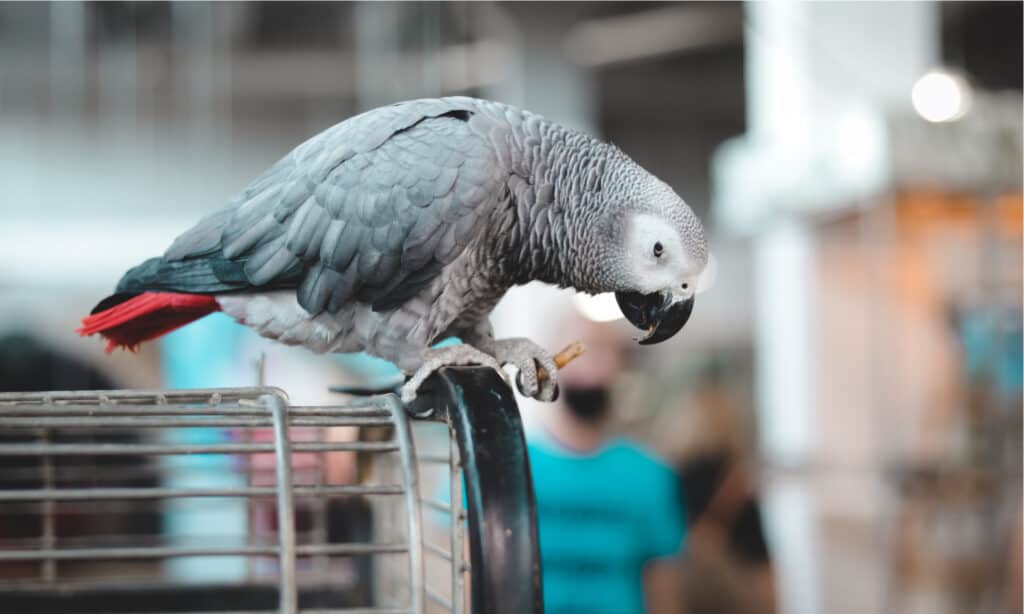
African gray parrots are the largest parrots in North America and one of the smartest animals on the planet. These birds can mimic human speech.
©Jane_Zh/Shutterstock.com
The African gray parrot is native to the rainforests in Central Africa. They are the largest parrots on the continent and one of the smartest animals on the planet. They don’t have colorful plumage like many other exotic birds, but their bright personalities and intelligence make up for their toned-down feathers. This species is excellent at mimicking human speech and possesses cognitive skills on par with a five-year-old child. So it’s no wonder that African grays are one of the most popular types of exotic pet birds. Like children, these parrots need attention much like toddlers. They like to socialize with people and other pets and need plenty of mental stimulation and exercise time out of their cages.
Hyacinth Macaw
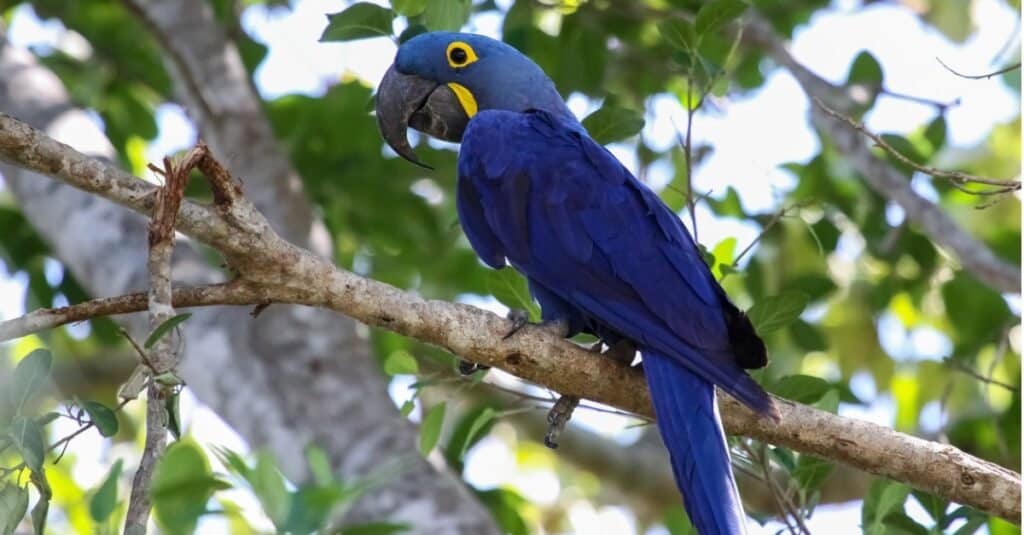
Hyacinth macaws are the largest of the flying parrots and, as their name implies, are covered with bright blue plumage.
©iStock.com/Uwe-Bergwitz
Hyacinth macaws are native to Brazil, Paraguay, and Bolivia, where they inhabit the edges of dense rainforests. Measuring over three feet long, these birds are the largest macaw and flying parrot species. They are coveted for their deep cobalt-blue plumage with bright yellow feathers around their eyes and beaks, giving them a constant charming grin. They are known as “gentle giants.” They are very calm and even-tempered, more so than other macaws. Like African grays, hyacinth macaws can mimic human speech, use tools, and work their feet like hands. These birds have incredibly strong beaks, applying 300 pounds of pressure per square inch. Due to their unusual strength, they need sturdy play gyms that can withstand their bites. They also need a lot of time to play and socialize.
Blue-Eyed Cockatoo
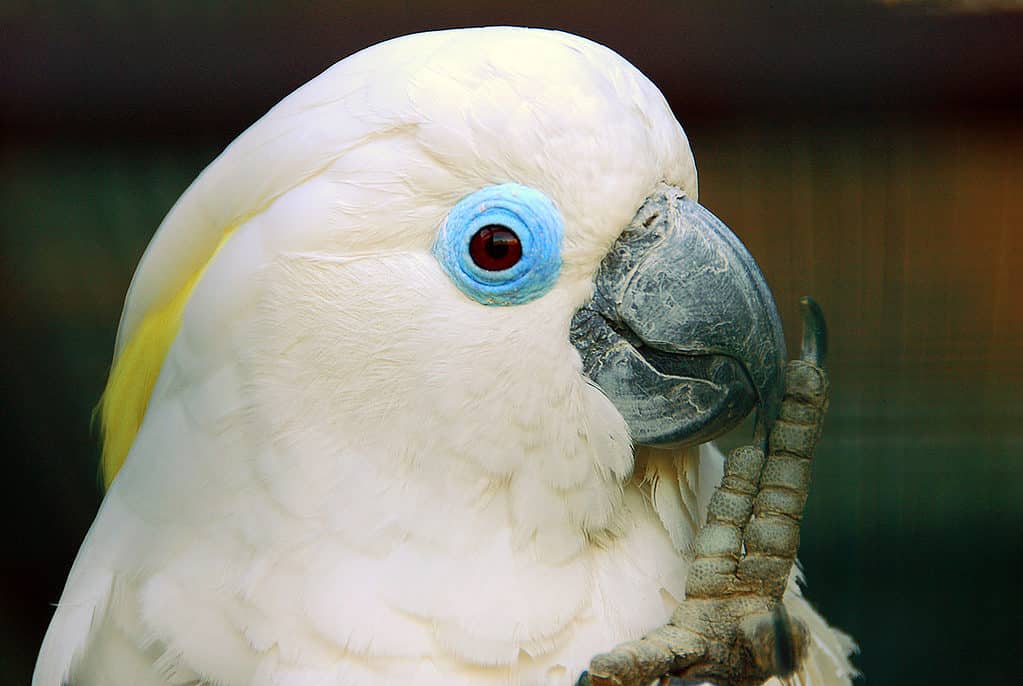
Blue-eyed cockatoos are one of the more friendly and loving cockatoo species, mimicking their owners, cuddling, and playing nonstop.
©Tobias / CC BY-SA 2.0 – License
The blue-eyed cockatoo features snow-white plumage with light yellow crests and bright blue eye rims. They are endemic to the lowland forests near New Guinea, where they nest in tall trees and fly high over the forest canopy. They are one of the more friendly and loving cockatoo species, mimicking their owners, cuddling, and playing nonstop. But they do require a lot of care and attention, at least several hours a day. However, if you take care of them, you will be rewarded with a social and affectionate member of the family. This species is hardy and adapts well to change, but they need plenty of space, sunshine, and social interaction. Many blue-eyed cockatoo owners share a special bond with their birds that can last up to 50 years!
Green-Cheeked Conure
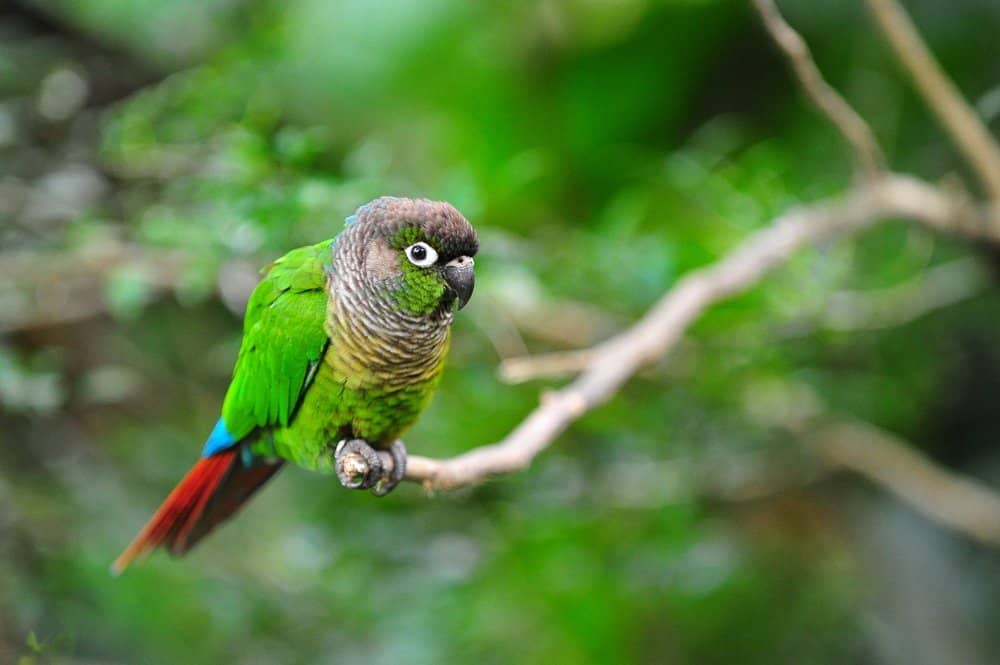
Green-cheeked conures are intelligent, curious, and playful, known for their spunky attitudes. But beware, they can be rather mischievous!
©Jordan Tan/Shutterstock.com
The green-cheeked conure, or the green-cheeked parakeet, is a small parrot native to forests and woodlands in Central and South America. They have bright green, blue, and red plumage and are popular in aviculture due to their small size. They are intelligent, curious, and playful birds known for their undeniable spunky attitudes. But beware, they can be rather mischievous! These birds are full of antics, especially when waiting for their owners to play. They are one of the more easy-going parrots, but they can still be nippy and uncooperative at times. They don’t need as much space as larger birds, but they still need a considerable amount of room and time for exercise. And like other pet birds, green-cheeked conures need attention and socialization.
Budgerigar
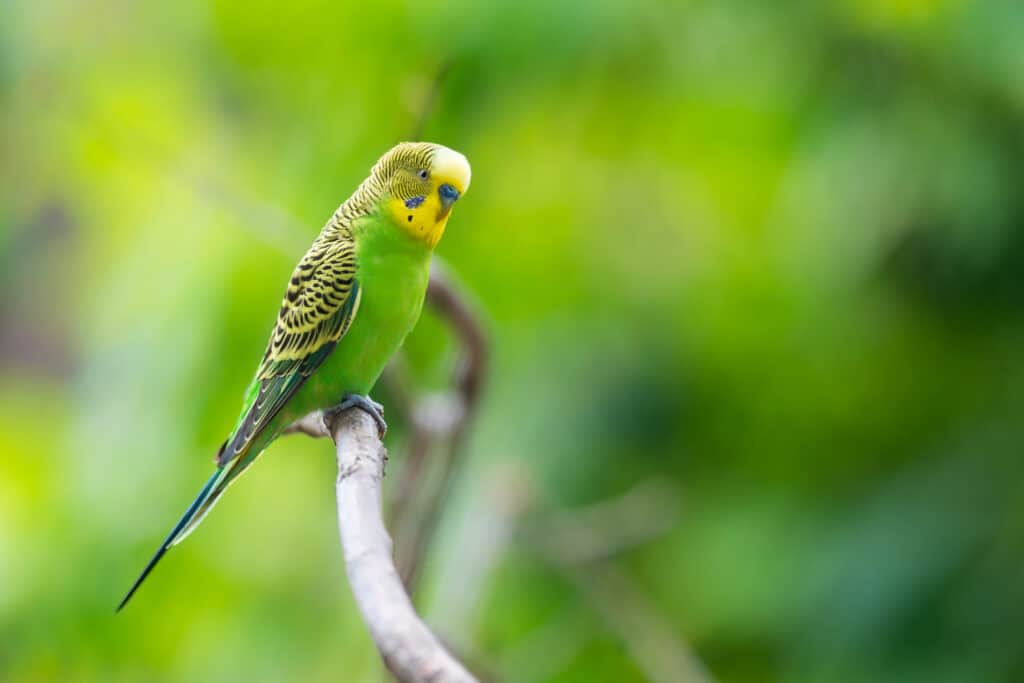
Budgies are gentle and docile birds, easy to tame, and often considered “beginner birds.”
©Ondrej_Novotny_92/Shutterstock.com
The budgie, also known as the common parakeet, is a small parrot native to the scrublands and grasslands of Australia. They are one of the most popular species in the pet bird trade for their adorable appearance and small size. They can mimic human speech and are known for their clear vocabulary and ability to use words in the proper context. These birds are gentle and docile, easy to tame, and often considered “beginner birds.” They are relatively low-maintenance and don’t need as much attention as their larger cousins. However, they still need daily socialization and playtime.
The photo featured at the top of this post is © Dgwildlife/Shutterstock.com
Thank you for reading! Have some feedback for us? Contact the AZ Animals editorial team.






